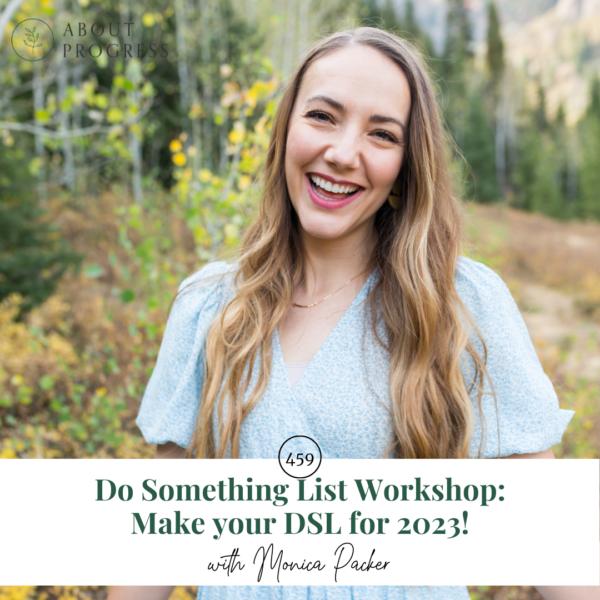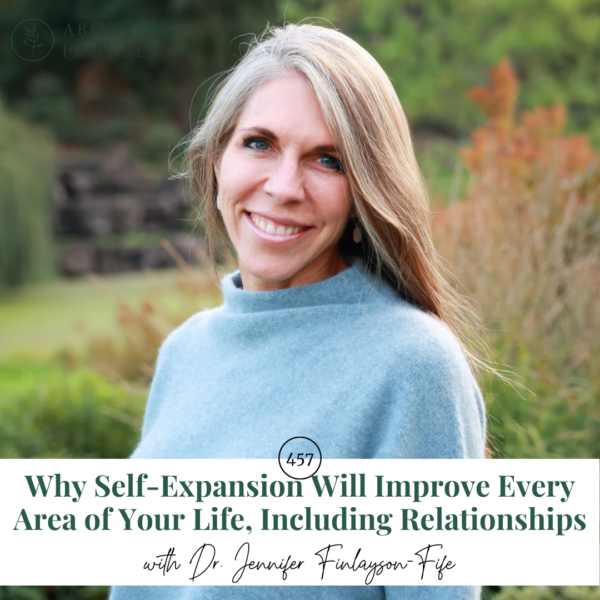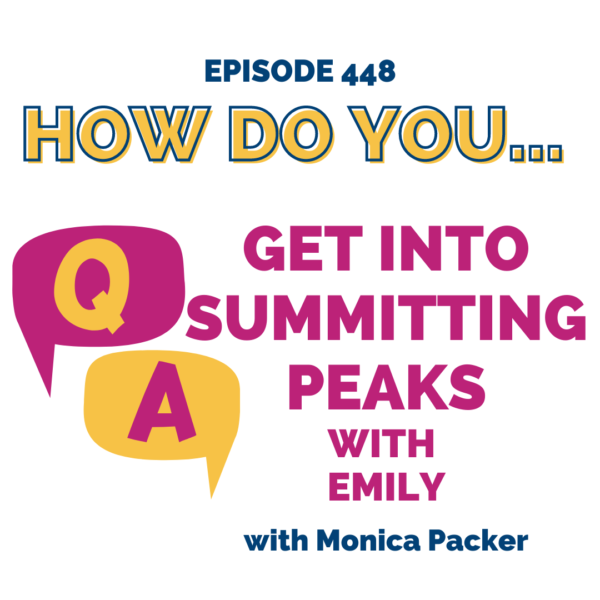Go from confusion to clarity about who you are, what matters and how you want to live out your life.
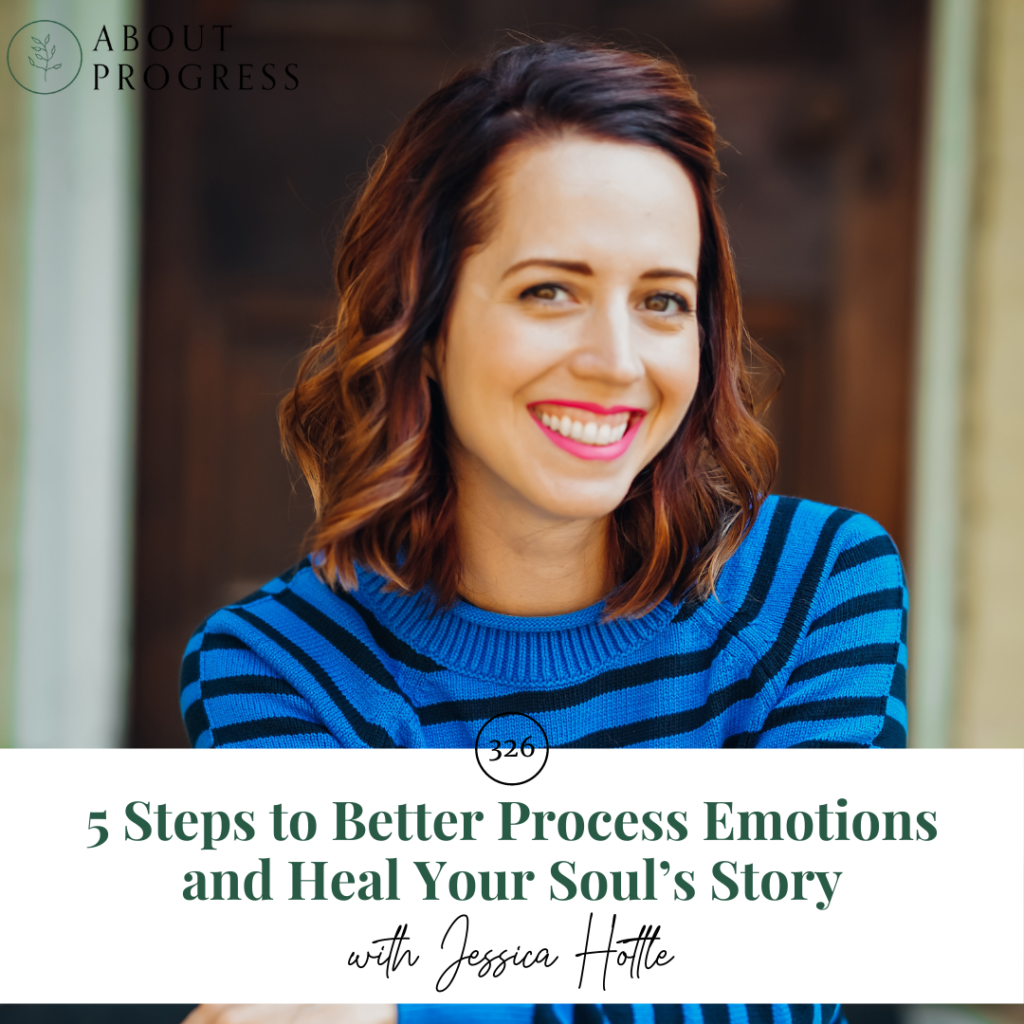
Today’s guest Jessica Hottle explains, “We are a spirit, we have a soul, and we live in a body.” In this interview she dives into the ways to become more in tune with your whole self, to find connection between body and soul as you work towards your purpose. Jessica’s own history as a self-proclaimed “emotional rollercoaster” explains how she began doing this work for herself and what she has since learned. Since we all operate best as a whole person, it’s so important to address what might be going on with the “soul story” we are telling ourselves. Use her 5 steps to better process emotions and heal your soul’s story right away.
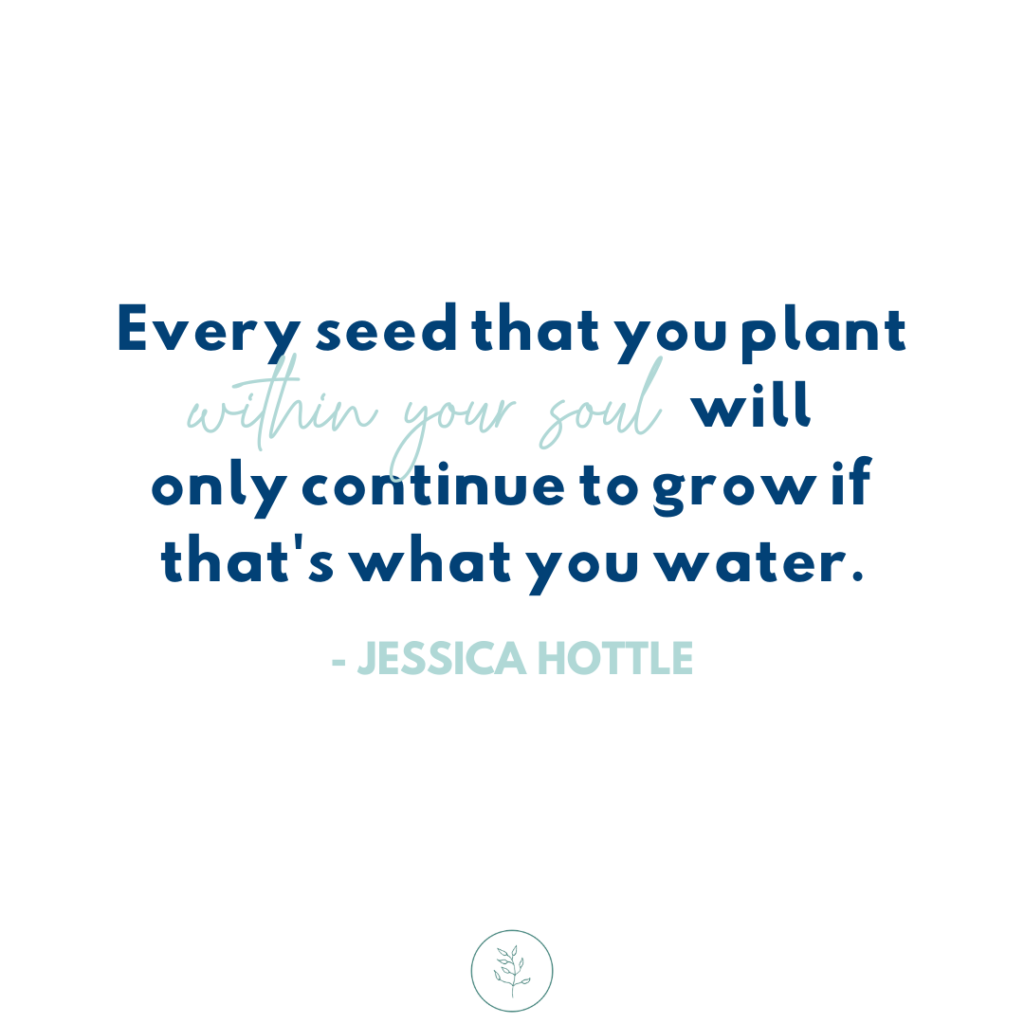
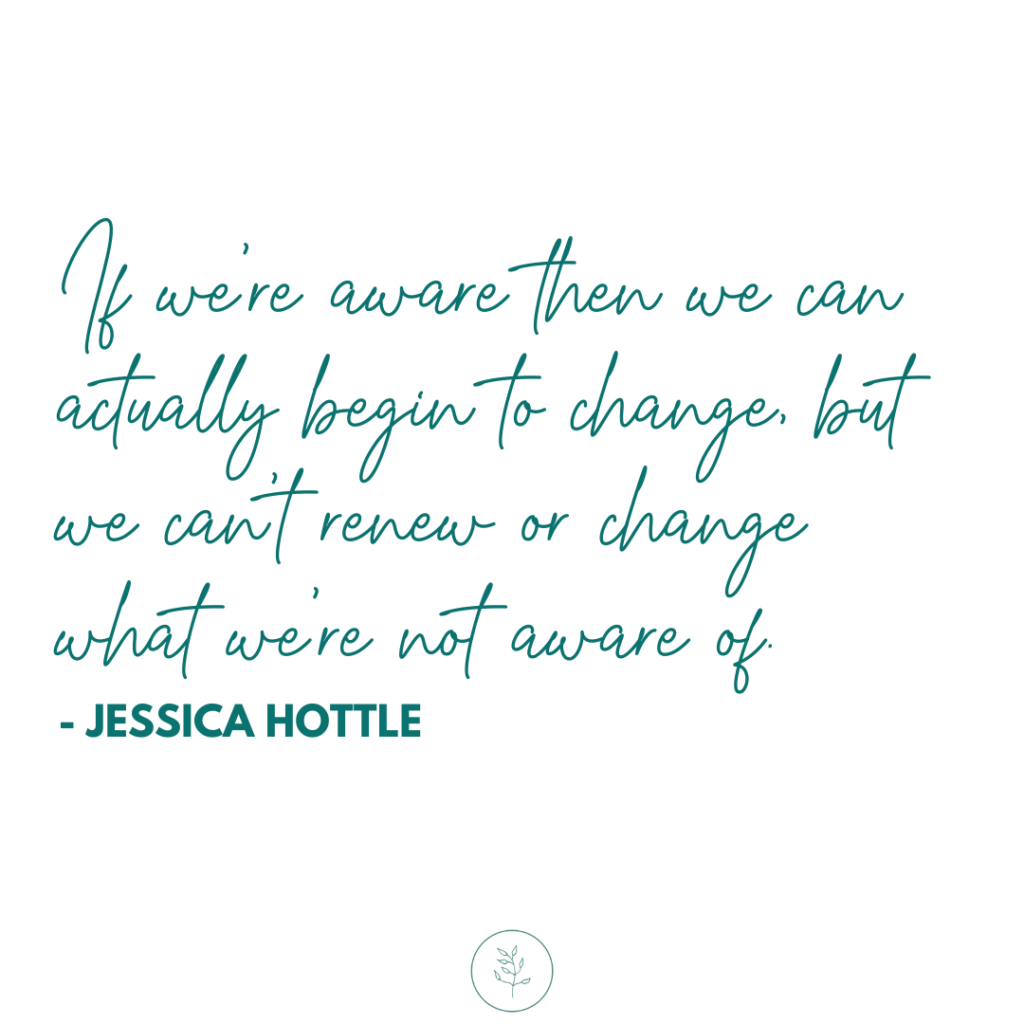
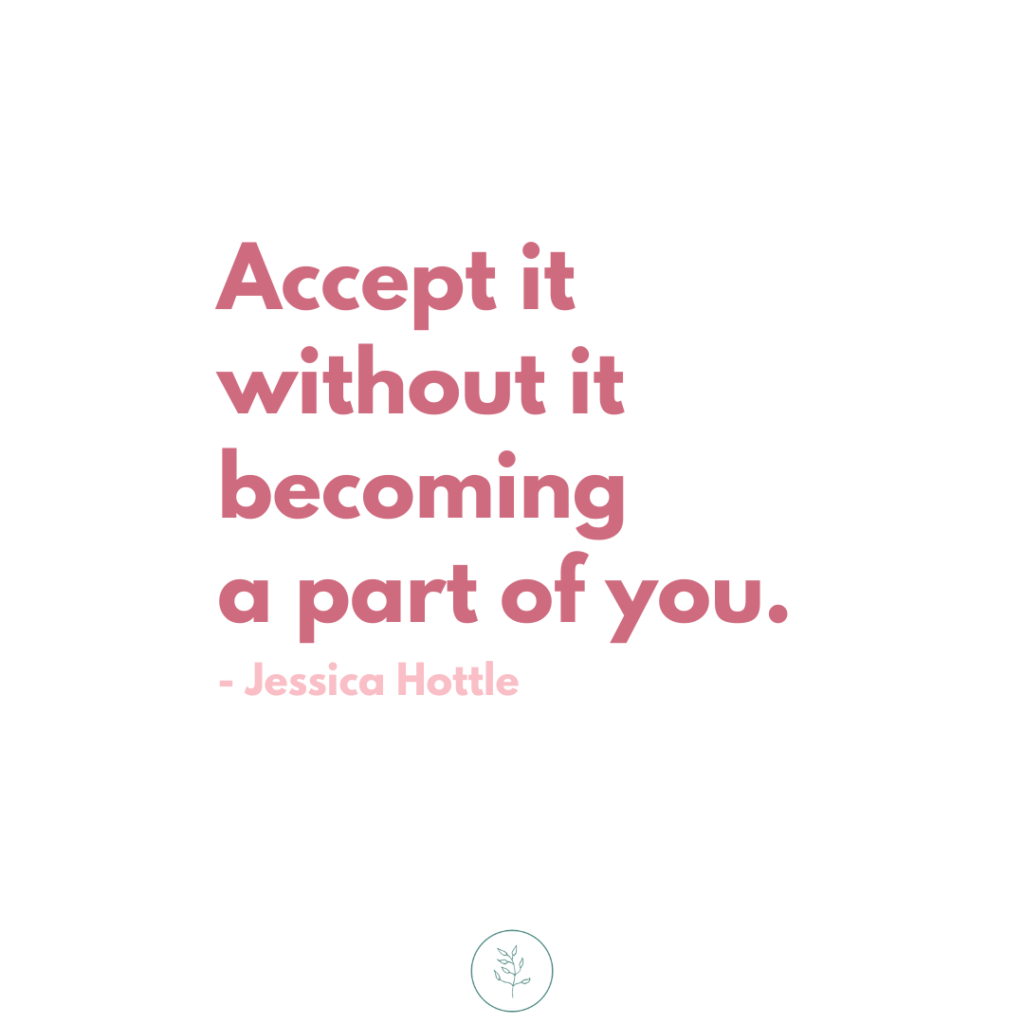
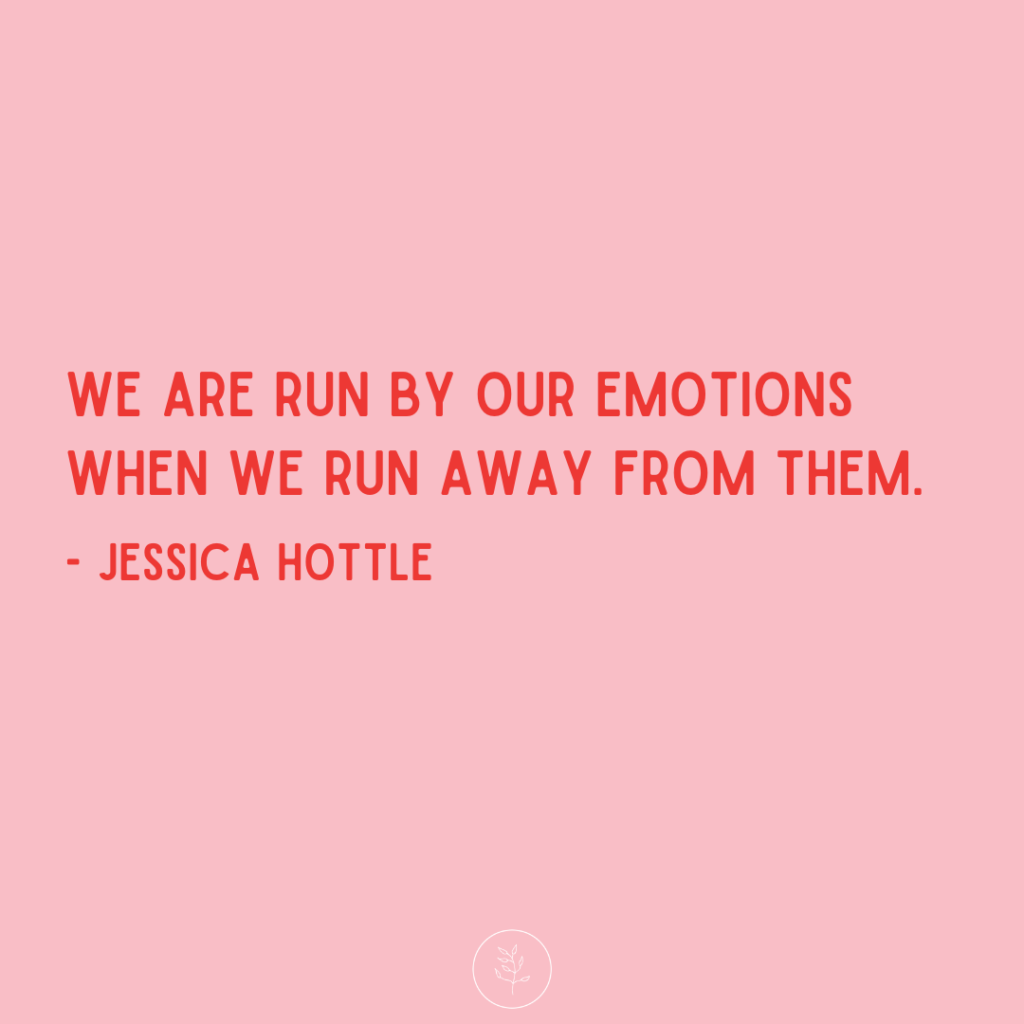
About a few other things…
I’m teaching a FREE CLASS this month on a very highly requested topic: decision-making! Join me live, online, to uncover the 2 secrets to beating confusion and making clear decisions that are right for you. If you can’t attend live a replay will be sent out after, so don’t miss out and sign up now!
Quality over quantity really matters to me during this season of my life, and you know I’ve applied that to my wardrobe. Sols offers beautiful handmade Mexican inspired sandals out of genuine leather made by artisans from Mexico. Use code ‘PROGRESS10’ for 10% off on Sols Shoes and let me know which pair you snag!
Sign up for the Go Getter Newsletter to get Progress Pointers in your inbox every Thursday.
You can listen the episode below, or on Apple Podcasts/iTunes, Spotify, Youtube, Overcast, Stitcher, Pocketcasts, or search for “About Progress” wherever you get your podcasts. If you like the show please share it, subscribe, and leave a review!!
SHOW NOTES
Jessica’s Instagram, Website, Podcast
Sols handmade shoes – ‘PROGRESS10’ for 10% off
Take my FREE CLASS on Decision-Making
My 2021 Do Something Plan
Get the Organization Overhaul audio course
Join the monthly membership group
Get your first month+ FREE with Libsyn using code MONICA
Lend your voice and experience + be featured on the show HERE
Join Monica on Facebook and Instagram
Songs Credit: DRIVE by Dj Nicolai Heidlas @nicolai-heidlas Music provided by FREE MUSIC FOR VLOGS AND VIDEOS bit.ly/freemusicforvlogs
TRANSCRIPT
Monica: [00:00:00] Welcome to About Progress, Jessica. It’s so nice to have you here.
Jessica: [00:00:03] Oh, I’m so honored. Thanks so much for having me.
Monica: [00:00:06] Well I loved being a guest on your podcast. How about you tell people where you’re at with your podcast and then we’ll lean into the topic.
Jessica: [00:00:13] So Monica and I talked about the lie, I address lies on the podcast, and we addressed the lie that I am broken.
And so many people resonated with that message Monica, and I’m sure your listeners probably would resonate with that as well. Every month, we’re so releasing lies that people believe and just speaking truth to them. And then I have truth talks where we have real raw and honest conversations about life. And as you’ll probably hear today, I’m more of a deep thinker, deep processor, and let’s get to the roots.
Monica: [00:00:44] Well, that’s why you’re here because we are a group of deep thinkers.
And today is a deep topic too. We are talking about a lot of different things in this, in the theme, you know, of seeking purpose and trying to find more of who we are. And for a lot of people, this is so connected to how they connect to their spirit and their soul.
And that might be where they’re stuck right now. They have this limit put on them because of maybe some numbness they’re experiencing, or some big emotions or anger or distrust. There’s so many things that go into that. So we’re going to have a pretty unique conversation today about how you can start healing your soul so that you can lean into the process of figuring out what your purpose is more and be released to do that from a place of power. With that big introduction, let’s talk about first, what you would define the soul, because I love how people define this differently and why you think it matters to our overall wellness and sense of purpose.
Jessica: [00:01:45] Yeah. So for me, I defined, I like to tell people that we are a spirit. We have a soul and we live in a body. It’s one of the easiest ways for me to be able to break it down. Therefore, our soul is really the gateway. It’s the valve that opens up, whether you partner with your spirit or you just partner with your body, meaning you kind of turn off that internal power that, you know, we’ve been given.
And so for me, soul is your mind, your will, and your emotions. It’s also your conscious, that consists of your personality. So when we think of it being kind of the valve and the gateway, meaning everything goes through your soul because it’s your thoughts, it’s your beliefs. It’s what you carry of, whether we partner with our spirit or our body.
Right? So a lot of that is my partnering with truths or my partnering with a lie and how we begin to play that out. We’ll begin to determine our response in this world and how our physical bodies respond.
So every seed that you plant within your soul will only continue to grow if that’s what you water.
Monica: [00:02:49] So in my mind, I totally relate to what you’re saying, because the way I’ve used soul is similar.
I think it’s your body and your spirit combined. That’s absolutely how I feel it is too. And when we are disconnected that way, it it’s really difficult. It can be for a lot of reasons. Maybe we are numb. Maybe we feel too much. And I wanted to hear what steps to take to, to heal your soul.
Jessica: [00:03:13] Yeah, I think there’s, I think there’s so many different layers to this. And a lot of times, whether it’s the wellness industry or productivity or whatever it is, we tend to put ourselves in these boxes. Okay. Well, I have to heal this area and I have to attend to this area. And this is that this part of the soul that does this. But if we really look at how we were created, every single part of us moves and operates together. So you can’t separate this part of your life without it bleeding into this part of our life. Right.
And I think that. Our brains and our bodies are so just special and gifted and beautiful in the way that when hard emotions come or hard feelings, it’s not the hard emotions themselves that are what we’re afraid of. It’s what they mean to us. Here’s kind of how I like to describe this is we have a stimulus. So you’ll hear me kind of saying that interchangeably between a stimulus and a trigger, we have an internal stimulus and an external stimulus. So an internal stimulus is you have a thought.
Your husband doesn’t come home, you start to think, Oh my gosh, maybe he got in a car accident, right? That’s an internal stimulus and an imagination and fear, which is an alternate reality that doesn’t exist will begin to take you down this path where the event is not even happening, but you’ll begin to have your heart race. You might start to sweat. You might start to get anxious. So an internal trigger, even though it’s not happening, can still, your body will still respond as though it is therefore an external stimulus, meaning you’re not constantly thinking of anything internally, but maybe it’s you run into somebody and they’re like, Hey, Jess, you’re fat.
Right? And I’m just saying that in general, but it’s just this reality of, well, that is an external trigger by somebody else. And then you carry a belief about that trigger. So whether it’s, you know, a real life external, somebody says something to you, an event happens a car accident, or it can just be even a joyful, right.
You’re at a wedding or whatever it is. You carry a belief about that trigger. Then with that belief, your body then begins to respond accordingly. So that’s why you get an emotion. The emotion is energy and it’s information so that your body can then begin to go, okay, here’s the trigger. We know what to do.
And here’s a belief about this. Respond accordingly. I’m going to send all the information throughout your body, and then you’re going to have all this information so that your body can then feel, so that’s why we get feelings, begin to feel according to what you’re thinking. So what happens when we feel we then react and it just continues to go in that circle with our thoughts, but what happens is everything around pain and our belief will tend to put us into hyper arousal or hypo, meaning we either are going to get really anxious and heart rate, you know, up and almost like we’re ready to fight, or we’re going to go into hypo, which is more depression, sad thoughts, or disassociation, which is what a lot of us do where we kind of just shut down and we’re like, we’re not going there.
And the most amazing thing is our bodies are just. Doing that because of the beliefs about those hard emotions. Does that make sense?
Monica: [00:06:23] Yeah, it does. I, I first learned this when I started going to therapy like forever ago and you know, my therapist taught me that cognitive cycle, but at the time, like it was, it was so eye opening.
Like I had never made that connection before, I did not understand it and it’s even harder to break it, but how does that relate more? Like how does that bring it back to our soul and healing? Healing the soul in turn through the cycle that you’re mentioning I, is it the chicken or the egg? It’s like what I’m wondering here.
Jessica: [00:06:57] For me, I love to understand the trigger because the belief is what I believe is in our soul. So if our soul is our mind, our emotions, that’s where our beliefs are. So for us to be able to change into believing something different, we have to actually go to the root in uprooted versus just trying to put a bandaid on it with habits and productivity or, you know, new workouts or new foods. That’s not going to change the internal response or internal position that you have on that particular thing.
Monica: [00:07:33] I am curious how you can come up with, or even think of some examples that relate to purpose, you know, especially when people are considering, well, what is my purpose? What am I here to do? What is my specific mission? Why do I matter? How is that connected to healing the soul side with our, starting with our beliefs about our own purpose and potential.
Jessica: [00:07:56] I think a lot of that has to do with how we were raised, how we were brought into this world, the narratives that we believe and the stories that we carry, because, you know, we can look at children and they’re invincible. They believe that they’re going to be all the things in the world. But as we get older, do we start to get more opinions? Do we start to define who we think we are, who we think we need to be. And I think when it comes to that kind of healing, the soul is really of this back to the beginning. Like when did all of this start, because in that cycle is when you can begin to break it and get to the root of it all. For me, personally, of knowing that these stories have been carried out and only gotten bigger over time so that I have to begin to then dismantle and kind of break down what is true and what is not.
Monica: [00:08:50] And that’s what I love about your podcast that you spend so much time really digging into what is the truth. And you’re right though. So much of how we frame our own life story. The narratives we told her are told about ourselves and our own capacity and our own potential. It’s wrapped up into so much more than just one initial trigger or one experience. And we’re going to dig into some more tips on how to help them and do this and how to unravel this for themselves. But let’s talk about you though. When has this been the case for you?
Jessica: [00:09:21] Hmm. I would say most of my life, I was the girl that was an emotional roller coaster. I was up. If somebody thought I was good, right. Like, Oh, good review. Good comment. Good. This good post. But I was down as soon as somebody said, Oh that wasn’t good.
Why would you write that? Or, and I began to understand that, wow. I carried a lot of weight in what people thought simply because I never thought I was good enough when I was child. Like a lot of what I had in the beliefs I carry carried from when I was young. I tell people I pretty much came out of my mother in like fight or flight.
I was in survival mode since I was a child. So to take care of myself, you know, 16 getting my first job paying for my first bed, buying my first car, you know, buying my lunch at school. Like everything was dependent on me from the time that I could really get a job and up until then, and I didn’t I would go without, you know, we would go without hot water, we would go without food. And I began to make these promises and my husband knows, Jess will always have food. You always have hot water and you always have heat because those things, as a child, a teenager, young adult, I didn’t have, and they were not always available.
I never knew. I was like, Oh, maybe I’ll have them this month. Maybe I won’t. And I carry those lies. So that meant Jess, you got to hustle all the time, because if you don’t take care of yourself, nobody will. And that led me into the hustle culture that led me into having a really hard time resting. And my husband pointed out once we got married and we were dating, he noticed he’s like, why do you, why do you shut down?
Like if somebody disagrees with me or you’re kind of we call them like the one uppers, right. Or you’re around somebody that maybe. Triggers you in such a way, like I tend to disassociate, so I will shut down. I’ll stop talking. I’ll kind of just like throw a little fit, cross my arms and my whole energy will change, but that was just me being triggered.
So that’s a lot of how it’s affected my life of being able to realize like, I shut down or I respond and get really like controlling because of X, Y, Z of my past. So I’ve definitely had to be more aware of why do I do this? Why do I get jealousy here? Insecurity here. Why do I get upset with my husband here?
It just kind of almost gives yourself a little bit more compassion and kindness in the process.
Monica: [00:11:49] How has, how has that shifted for you in terms of, obviously you’ve done the work you’ve really put leaned into the work, but also how has it changed you for better? Like how are you able to better navigate your place in this world and knowing who you are now?
What’s the difference?
Jessica: [00:12:07] For me, it is. I used to be afraid of confrontation. You know, I grew up in a home that was confrontation, where it was, you know, emotionally and physically abusive on both sides between my mom and my dad. if anybody had an opinion, there was a repercussion, right. Therefore I never wanted to.
Engage in any kind of discord or disagreement. That led me to dating men, that I would change how I dressed. I would change the music I listened to because, well, I didn’t have a backbone. I just wanted to go with the flow. Cause I did not want to deal with confrontation of any kind. And then coming out of this, I realized the importance in it. I’m 33 at the time, this recording, but it took me a long time. And like you said, a lot of work to be able to really understand what happens when we don’t address things as they’re happening. That has kind of been a gift for me coming on this side of being able to have hard conversations with love and kindness, because I have so much compassion and understanding because of my own past history.
Monica: [00:13:11] It seems like I can save you with this transition from being confused, to being clear, you know, really just having more clarity about who you are and what matters to you and how you want to live out your life.
So if we’re going to go back to where we started with thinking about our souls. You know, if your soul is, is an, a troublesome place, if it’s numb, if it’s just emotion driven, you know, that aren’t based on real stories, it’s not based on the truth, then you’re not going to be able to have that clarity. And without the clarity, you can’t really live with the purpose that you need to in your life. Any thoughts on that?
Jessica: [00:13:47] Yeah, absolutely. One thing that’s so important for us to understand is we see the world. Through how we believe the world can be, which is. Usually through arcane and our beliefs.
Therefore, if we just view the world as it’s out to get me, or it’s not for me, or people hate me, you will live through that lens in everything you do, which is probably why you won’t pursue that podcast or that book or that ministry, or that nonprofit, is because, well, You believe maybe because of what other people have said or how you’ve lived in this world or what you witnessed, you will begin to live that out as your world view.
So that’s why I believe we carry like these layers of pain and every layer of pain only builds on top of the other. It doesn’t go away, which is, you know, it’s almost like these scales, so to speak, come off of our eyes with every new layer that comes off of pain, because we can begin to see the world in a different light.
Monica: [00:14:48] We’re reframing the story. We’re also getting clarity on what our role is within our own story. And I think that is a much more powerful position to be in instead of just waiting for life to happen or waiting for your destiny or purpose to be handed to you, you have more of a position of power. So let’s give our listeners ways of how they can heal their own soul story. That’s what I’ve turned this into. You know, we all need to heal our soul stories so that we can move forward to a brighter future. Cause it’s all based on the story and the emotions and the feelings and the actions that we’re taking.
So what can they do to start to heal their own soul story?
Jessica: [00:15:26] For me, it was always the awareness. And I always tell him, and I’m like, Hey, you know, cause I work with women mainly, but I say just, if you’re aware, that is like, amen, you’re there. You’re like, cause we’ll be we’re aware then we can actually begin to change, but we can’t renew or change what we’re not aware of.
So the first thing I always like to say is just acknowledge, just acknowledge something. Isn’t right. Okay. Right. Like maybe you’re in a situation or you’re feeling something. So before you respond, before you create that post or that Instagram story, or go to your husband, just take a minute and acknowledge.
And you’re like, okay, something not right. You know, I went from this mood to this mood or this feeling to this feeling. So step one would just be saying to yourself, Hey, something doesn’t feel right here for me. And then step two would just be able to go into say, well, I’m going to identify what doesn’t feel right. I have read many times about the power of just naming it. So that way you’re not kind of in your mind thinking, Oh, what’s going on? Just name it, give it a name. So that you can call it out, call it for what it is and begin to process and move on. So that’s kind of, the second thing is just identify what doesn’t feel.
Monica: [00:16:40] I like that step too, Jessica, just because it makes it objective. Like you don’t have to make it be another story about yourself.
Like another story that is going. Yeah. Like you talked about those layers. Okay. Yeah. Thank you for that.
What’s next?
Jessica: [00:16:55] No, I actually love the, to kind of stop that on the objective side is yeah.
I love that as well. That’s often something that I try to do a lot is kind of looking if there’s two of me or like me, and I try to, when I’m telling women about looking and processing feelings and emotions, I kind of give them. I say that they’re sitting in a chair watching a TV, you have the remote and across the TV are your thoughts, your feelings and everything that goes across.
Well, you have the remote so that therefore you have the power to choose what channel you stay on. Hmm. So that’s kind of the objectiveness of, if you can picture yourself sitting in the chair and you kind of also picturing the thoughts, the memories, the whatever’s coming at, you going across the screen, you’re not taking in those thoughts and emotions as your own.
You’re just looking at them and you’re like, you know what? That’s not true. That’s a lie and you can flip the channel and choose to change it. Maybe that’s a little visual that can kind of add it in there.
So number three is then begin to accept it without it becoming a part of your worth or identity. So when I say accept it, it’s just the saying, Hey, you know what? Okay, right now, this is what I’m feeling and experiencing so many times we want to like change our story so that we don’t feel like shame or more pain, but what happens is that we actually create more shame and more pain. The more we try to hide it or reframe it in a way that tries to cover it up, we just need to say, Hey, I feel sad. I feel angry and say, okay, that doesn’t mean that it changes that I’m still a nice person, but there’s something deeper.
So you can accept it without it becoming a part of you. And then number four, is what’s it communicating to you? Which is kind of what we talked about in this episode. So that means how is what you are acknowledging then affecting your life?
So just being able to say, you know what, okay, I’m acknowledging something isn’t right. I’m going to just name it. Okay. I’m angry. I’m sad. Whatever is I’m feeling. I’m going to choose to accept the story right now, because then I can actually have power over it versus it having power over me. Then I’m thinking, why did I get so angry?
That’s the communication. What is it communicating with me? So maybe it’s because my husband said this, or my kids said that, or my best friend said that. That made me upset that made me angry and then I can go, well, why did it make me angry? But then that can lead to a healthy conversation that can then lead to, Oh, I can go to my friend or my husband or whoever and have this conversation about why they have that hurt me. And that’s like a whole other topic.
Number five is just really having a conversation. Get counsel, talk with a friend, work it out. I mean, the most important thing is these lies typically like to make you feel isolated, right? Like these feelings, like you’re, you’re the only one, how dare you think this way.
And then we turn more inward because we feel so bad for feeling this way. So I always like to say, after you’re having all of these emotions and feelings and this goes like, This happens very fast, but have a conversation with somebody that’s trusted. That’s not always going to validate what you feel, but that will also challenge what you feel or, you know, get counsel and to be able to work.
Monica: [00:20:18] And that’s where, of course more work happens. But this is, I think the hardest work is just these five steps that you just shared. And that’s the ones we tend to avoid the most because sometimes as uncomfortable as these stories are. To live out and to believe in and continue to play out in our life.
They’re also strangely comfortable. We’re used to them. We know them. They’re not as scary as digging into the unknown, which healing really requires.
Jessica: [00:20:49] How many of us say, like, we want change? We want change. But when change comes to it, we don’t want change because everything in his fight against like our bodies, again, protects us the change.
What does it mean to change? Then we get into the fear of the unknown. We desire change, but when change comes and the work that’s required, We tend to shrink back and go, well, maybe I don’t want change because that is where the real work and that tension that we live in a moving into truth. As we move out of the lie,
Monica: [00:21:22] I’m going to share a little quote here from Dr. Jennifer Finlayson five. She’s a therapist we’ve had on this show many times and a mentor of mine. And she says, “you can have the discomfort of growing or the discomfort of not growing either productive discomfort or unproductive discomfort, which do you choose?” Yeah, it’s good. And it’s hard to recognize that, right?
Jessica: [00:21:40] Yeah, absolutely. Something I always like to say to you is we are run by our emotions when we run away from them. Hm. Yeah. I’m like, it’s just, this, it’s like a visual of when we just don’t acknowledge what’s going on. Like that’s a perfect, I mean, it’s amazing quote, it’s so true. Either way.
We are going to be uncomfortable. Right. So we are going to be. Discomfort or uncomfortable in sitting in the not change or in the changing, but one is always going to make us, you know, love better love well, be more kind show up better for purpose, live on purpose versus the other one, which will cause us to still shrink back, hide and feel like we’re not good enough.
Monica: [00:22:21] One makes us shrink. One makes us stronger and neither, you know, fun all the time, but there are different outcomes that we can count on in the longterm. Since this is a long process and I totally had an aha by the end of our conversation, because that’s how my mind can work. Sometimes I can lag behind you taught us so much about souls and how we view things.
And, and one thing that came to mind to me is it seems like our soul’s language is with feelings. You know, it might not. Have like a direct voice or like give you a book. Like, here’s what I want to tell you today. It’s communicating through the emotions. Again, I’m just making connections with everything you’ve taught us today.
So I’m just doing that for other people who are like, Oh, now I get it. So. As, as we’re trying to figure out, well, what is, what do I need to heal? What do I need to work on? Start with the feelings like Jessica said, start there because they are your soul’s language and they’ll direct you more to figuring out what really is the story that’s going on in your mind so that you can then unravel that and live out a different story. Anything to add with that, Jessica, now that I finally made those
connections.
Jessica: [00:23:25] Yeah, we did go over a lot. And for me, the more I understand how I react, it has, like I said, it’s been able to kind of give me more authority and power over my feelings, because a lot of times we think we can’t control what we feel and in moments we can’t.
Right. We feel as though we can’t, but I’m all about empowering women to, to realize that yes we can. And I think you really summed it up pretty well of. Realizing that the feelings that we have are just a story that our body is trying to tell us. And that really comes from our soul, which stems from our thoughts.
Monica: [00:23:56] Mm. Okay. Yes. Thank you for helping me finally connect the dots here some days it’s just like that, right? This has been so profound for me, and I really enjoy talking to you and learning from you as well. If you can remind people where to find you on Instagram, and then I have one final question for you.
Jessica: [00:24:13] Yeah, I am Jessica Hottle on Instagram and pretty much everywhere website, all that. Great.
Monica: [00:24:19] And tell them the name of your podcast one more time.
Jessica: [00:24:22] So the podcast is what’s the truth. That’s where we talk about lies and truth and all the things in between.
Monica: [00:24:30] And if people are really stuck in the fear, that’s the number one way to get past it, right? It’s it’s the truth, the real truth.
Jessica: [00:24:37] Yeah, absolutely. And, and one little kind of quick takeaway is most people are like, well, how do I define what a truth and a lie is? And this is the best way I can describe it. A truth will always bring restoration, redemption and healing. So every thought that you have that’s based on truth will bring those, that kind of fruit. A lie will always carry destruction, separation, division.
And so just pay attention. That’s how you’re going to tell whether it’s truth or a lie based on what is it causing me to feel and react.
Monica: [00:25:10] Okay. There we go back to the language, right. But the soul’s language. Thank you. That gives me a lot of clarity on how to be able to tell the two apart. So my final question I like to ask , since, you know, we’re a self-development show, the final question is what is, what are you working on with your own personal development?
Jessica: [00:25:25] Yeah. I mean, for me, it’s been phone boundaries and morning time of realizing how. You know, we love routine. We’re like creatures of habits, right. We sit in the same chair everywhere we go, no matter where we go. And for me of just kind of being kind to myself of like, why do I feel like I have to do XYZ every single morning and being willing to, to kind of be a lot more flexible.
So, phone boundaries has been huge for me of what that looks like and shut down time and making sure my screen time is like below a certain time and really being flexible in my morning time and how I do that. And what time I start work and kind of going through that process.
Monica: [00:26:07] Oh, so good. Thank you for sharing that.
And for affirming some of the things that I know I am working on as well. It’s funny, we are, we’re pretty similar that way. What we’re actually working on this very moment, Jessica. Thank you again for being on the show. It was a pleasure to have you.
Jessica: [00:26:22] Thank you so much for having me.
